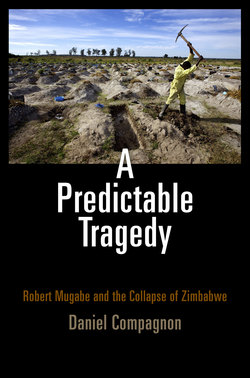Читать книгу A Predictable Tragedy - Daniel Compagnon - Страница 9
На сайте Литреса книга снята с продажи.
ОглавлениеChapter 3
Militant Civil Society and the Emergence of a Credible Opposition
Although some opposition parties existed prior to 1999, none succeeded in breaching the ZANU-PF monopoly. Indeed, the Movement for Democratic Change is “the first substantive opposition party to emerge [in Zimbabwe] in the last 20 years.”1 However, the positive legacy of the failed opposition of the 1990s should not be underestimated. Not only had these parties contributed to the democratic struggle at a time when many civic and union leaders claimed to remain “nonpartisan” and avoided harassment from the state, but the MDC also drew some precious lessons from their pioneer work. By its near success and the sheer scale of its challenge to Mugabe’s rule, however, the MDC is unique in Zimbabwe’s history.
Civil Society Moves from Passive Resistance to Politicization
The limits and failures of opposition political parties in the 1990s, partly attributable to their lack of impact at the grassroots level, left civil society as the only effective source of opposition to ZANU-PF’s neo-authoritarian rule.2 If indeed Mugabe’s regime was not at that time just another African autocracy, it was largely attributable to a lively civil society and its almost twenty-year resistance to incorporation or control by the state. This militant civil society later became the cradle of the MDC, the emergence of which incidentally tends to defeat the notion of civil society’s ingrained political impotence. The trade unions and their sustained struggles to achieve and maintain their autonomy, as early as 1988, played a pivotal role in this transformation. The contributions of the private media and independent-minded judges are also key factors in understanding how civic organizations managed to counter ZANU-PF hegemony.
Whether or not theoretical debates on the concept of civil society validate its use in an African context,3 there is, in countries like Zimbabwe, a reality that needs to be assessed. A wide range of nonstate actors (sometimes called “civic organizations”), differing in significance, stated objectives, and structure, are active in the public sphere in competition and/or in collaboration with the state. Some are seen as formulating primordial identities (class, religion, or ethnic affiliation) or as protecting sectional interests (professional lobbies), but others, such as various advocacy groups on the environment, human rights, women’s conditions, or HIV/AIDS, are providing services yet also promoting a public debate on policy issues. They try to force government to take into account all stakeholders or, more specifically, the marginalized sections of society.4 Some play a unique social or economic role; others raise the people’s political awareness. This broad category of organizations operating outside the realm of the state includes urban resident ratepayer associations, trade unions, churches, and the independent media—although the latter also functions as a business.
